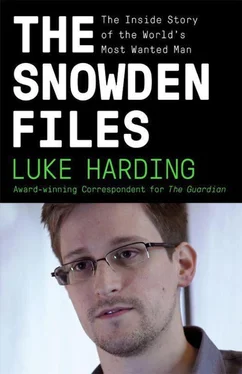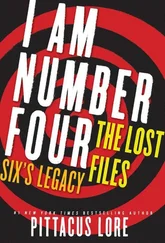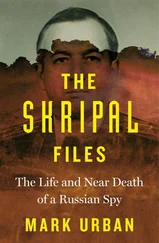As the day unfolded it became clear that the leaks had got the president’s attention. The NSA programs helped defend America against terrorist attacks, Obama said. He added that it was impossible to have 100 per cent security and 100 per cent privacy: ‘We have struck the right balance.’
Rusbridger and Gibson watched Obama on the TV monitor: the immensity of what the Guardian had initiated was sinking in. Gibson says: ‘Suddenly he was talking about us. We felt: “Oh shit. There’s no going back.”’
Gibson called Hayden again to warn her that another story was coming down the runway, this time on BOUNDLESS INFORMANT. The top-secret program allows the NSA to map country by country the voluminous amount of information it collects from computer and telephone networks. Using the NSA’s own metadata, the tool gives a portrait of where the agency’s ubiquitous spying activities are concentrated – chiefly, Iran, Pakistan and Jordan. This came from a ‘global heat map’ slide leaked by Snowden. It revealed that in March 2013 the agency collected a staggering 97 billion intelligence data points from computer networks worldwide.
Gibson launched into her legalistic script, inviting the White House to air its latest concerns. ‘I’m just going to say my thing,’ she told Hayden brightly. Hayden replied: ‘Please don’t.’ From the NSC, there was, perhaps, a grudging acceptance that the Guardian had behaved responsibly. The tone was cordial. That evening, Inglis himself rang. The subject was BOUNDLESS INFORMANT. The NSA deputy chief’s response to Gibson was a half-hour lecture on how the internet worked – a patronising tutorial. Still, Gibson notes: ‘They had moved into a place where they were trying to engage with us.’
Like most of the Snowden files, the BOUNDLESS INFORMANT documents were highly specialised, and not easy to parse. The plan had been to publish later on Friday. With journalists gathered round, Rusbridger read the draft story out aloud, line by line.
He stopped several times. ‘I don’t quite get that,’ Millar said.
Very quickly it emerged that more work was needed. In Hong Kong, Greenwald went off to search for more documents that might help. He found several, and the story was then re-written and posted the following morning. Gibson told her non-Snowden staff that they were free to take the weekend off. But practically all journalists came in. They wanted to witness the extraordinary denouement to an extraordinary week.
For Snowden himself now declared his intention to go public. He proposed, he said, to reveal his own identity to the world.
7
THE PLANET’S MOST WANTED MAN
Mira Hotel, Nathan Road, Hong Kong
Wednesday 5 June 2013
‘If I were a Chinese spy, why wouldn’t I have flown directly into Beijing? I could be living in a palace, petting a phoenix, by now.’
EDWARD SNOWDEN
It had been around 3am local time when the Guardian broke the first of Snowden’s NSA stories. Returning to his Hong Kong hotel room early the next morning, the three reporters found the whistleblower ecstatic.
His revelation was there, running on CNN at the top of the news. Snowden turned the sound up on his hotel TV. Wolf Blitzer, CNN’s anchor, was sitting with a panel of three pundits: they were discussing the possible identity of the Guardian ’s mysterious source. Who was the leaker? Someone in the White House, perhaps? A disaffected general? A KGB super-mole? It was a moment of some irony. ‘It was funny watching them speculate who might have leaked it when you are sitting beside that person,’ MacAskill said.
The public response surprised even Snowden. Posts on the internet were massively supportive; already a grassroots movement, Restore the Fourth Amendment, was springing up. The rapid publication was good for his relations with the Guardian : it demonstrated to Snowden that the paper was acting in good faith. All along his goal had been to spark a debate; he felt that the Verizon story was achieving that, making a big splash.
MacAskill wondered if the leaker was going to be smug, thrilled or proprietary to find himself at the centre of world events. Remarkably, he was totally impassive; he listened to CNN intently. He seemed to understand the enormity of what had happened. From this moment there was no way back. If he flew home to Hawaii now, arrest and incarceration would follow. Snowden’s life was never going to be the same again.
So what next specifically? The most likely scenario for him, as Snowden sketched it, was that the Chinese police would arrest him in Hong Kong. There would be a legal tussle. Possibly for a few months. Maybe even a year. At the end of this he would be sent back to the US. And then… well, decades and decades in jail.
Snowden had turned over an enormous quantity of material on portable drives. This included not only the NSA’s internal files, but also British material emanating from GCHQ and apparently trustingly handed over by the Brits to their US colleagues.
‘How many British documents are on these?’ MacAskill asked.
Snowden said, ‘About 50,000 to 60,000.’
He had given months of thought to his planned dealings with the media. He was fastidious. He wanted a series of strict conditions for handling secret material. He was insistent that NSA/GCHQ documents disclosing spying should go to the respective subjects of surveillance. He felt Hong Kong media should have information relating to spying on Hong Kong, the Brazilian material to Brazilian media and so on. He was categorical on this point. If, on the other hand, the material fell into the hands of third-party adversaries such as the Russians or the Chinese, this would lay him open to the damaging charge that he was little more than a defector or foreign agent – which he wasn’t.
Snowden was alert to the possibility that foreign intelligence services would seek his files, and was determined to prevent this. As a spy, one of his jobs had been to defend American secrets from Chinese attack. He knew the capabilities of America’s foes. Snowden made clear repeatedly that he didn’t want to damage US intelligence operations abroad.
‘I had access to full rosters of anybody working at the NSA. The entire intelligence community and undercover assets around the world. The locations of every station we have, all of their missions… If I just wanted to damage the US I could have shut down the surveillance system in an afternoon. That was never my intention,’ he said.
He put it in even more vivid terms, when subsequently accused of ‘treachery’: ‘Ask yourself: if I were a Chinese spy, why wouldn’t I have flown directly into Beijing? I could be living in a palace, petting a phoenix, by now.’
During the days of debriefing in Hong Kong, Snowden said citizens in countries that recognised whistleblowing and public-interest reporting had a right to know what was going on. He wanted the Guardian and other media partners to filter out anything that was operational and might damage legitimate intelligence activities. These were his conditions. All agreed.
Technical precautions were taken. The files were on memory cards. They were strongly encrypted with multiple passwords. No one person knew all the passwords to access a file.
The US freelance journalists approached by Snowden now had in their possession a large treasure trove of classified material. The WikiLeaks disclosures, published by the Guardian in London in 2010, were of US diplomatic cables and war-logs from Afghanistan and Iraq leaked by the US private Chelsea Manning. A few – just 6 per cent – were classified at the relatively modest level of ‘secret’. The Snowden files were in a different league. They were ‘top secret’ and above. There had once been a melodramatic defection of Cambridge-educated spies to Soviet Moscow – Burgess, Maclean and Philby. But there had never been a mass documentary leak at this vertiginous altitude before.
Читать дальше












